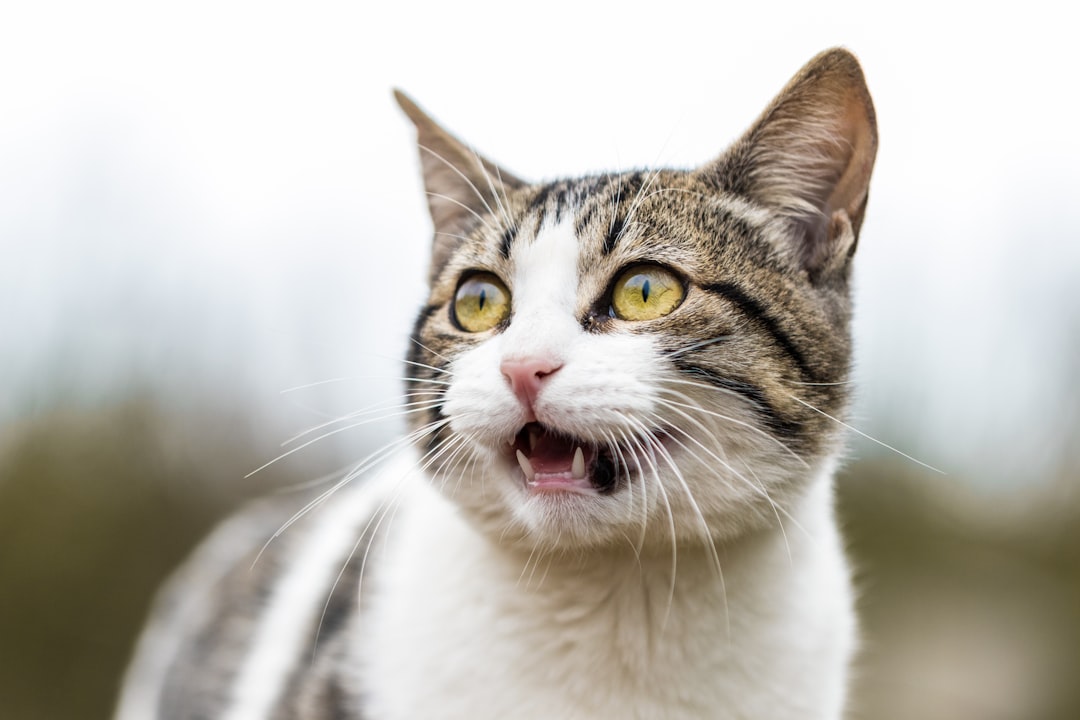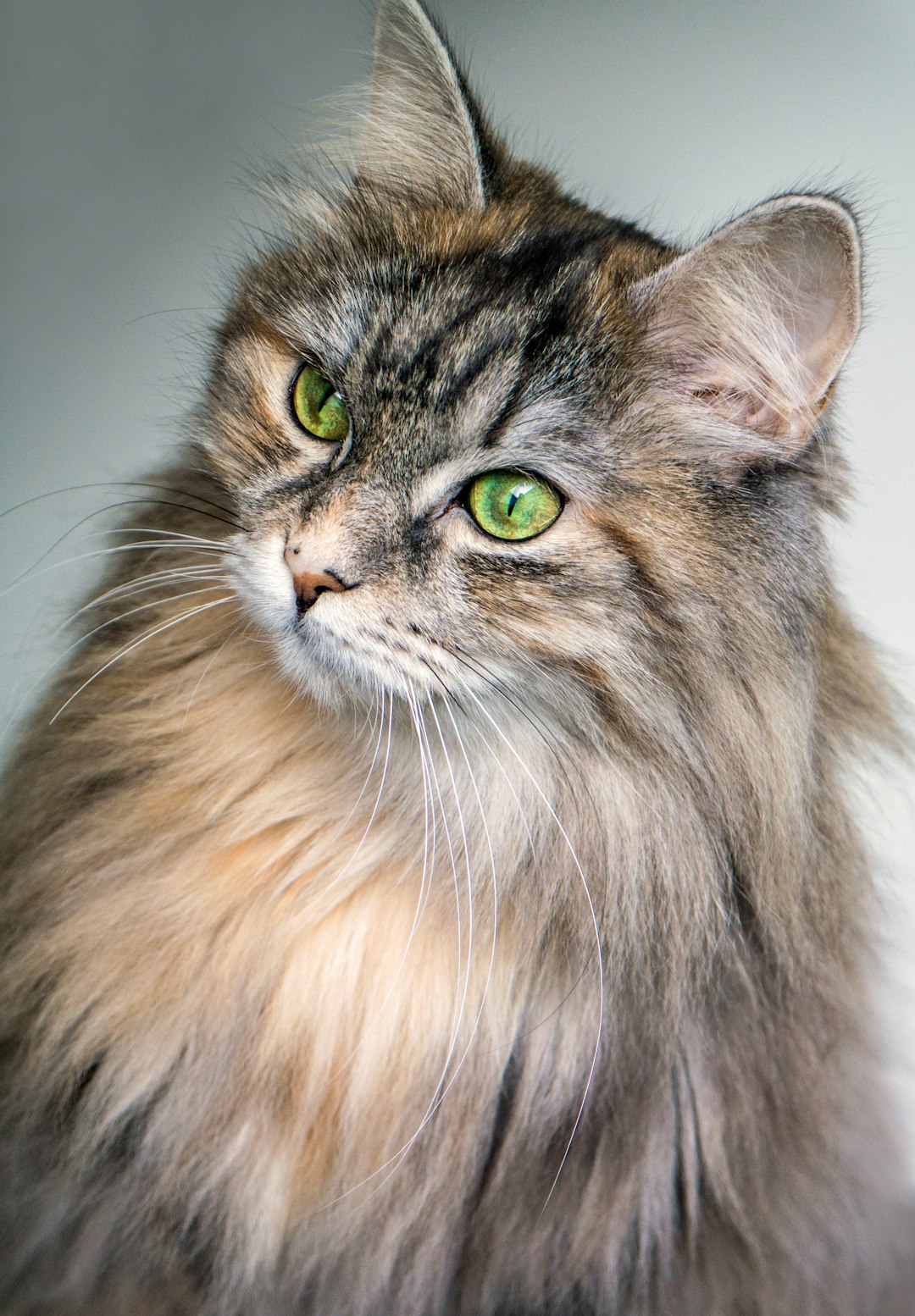Many cat owners often wonder, “can cats eat ice cream?” While the thought of sharing a frozen treat with your furry friend may seem appealing, it’s essential to understand the implications of feeding dairy products to cats. Despite some cats loving the taste of ice cream, their unique digestive systems may react negatively to lactose. This article will guide you through the nutritional needs of cats, potential risks, and safe alternatives to indulge your pet while keeping their health in mind.
Understanding Cats and Dairy Products
Many cat owners wonder, can cats eat ice cream? To answer this, we first need to understand how cats respond to dairy products. Contrary to popular belief, most adult cats are lactose intolerant. Here’s what to consider:
- Lactose Intolerance: After weaning, cats lose the enzyme lactase, responsible for digesting lactose found in milk. This makes it challenging for them to process dairy, including ice cream.
- Symptoms: If you decide to share ice cream with your feline, watch for:
- Diarrhea
- Vomiting
- Stomach cramps
- Calcium Needs: While calcium is essential for cats, they can obtain it from non-dairy sources such as:
- Meat
- Fish
- Certain vegetables (like broccoli)
- Flavor Preferences: While cats might enjoy the taste of ice cream, it doesn’t align with their nutritional needs.
In summary, although many cats may find it tempting, can cats eat ice cream? The answer is generally no, due to their lactose intolerance and nutritional requirements. Always prioritize safe and appropriate treats for your furry friend.
The Risks of Feeding Ice Cream to Cats
When considering the question, can cats eat ice cream, it’s essential to recognize the potential risks involved. While the idea of sharing a delightful treat with your feline friend may seem tempting, the consequences can be detrimental. Here are some key points to remember:
- Lactose Intolerance: Many adult cats lose the enzyme lactase, which means they struggle to digest lactose found in dairy products like ice cream. This can lead to gastrointestinal issues such as diarrhea and upset stomach.
- High Sugar Content: Ice cream typically contains high levels of sugar, which is not only unhealthy for cats but can also lead to obesity and diabetes.
- Fat Content: Most ice creams have a high-fat content, which can cause digestive problems and contribute to conditions like pancreatitis.
| Risk | Ice Cream | Cat-Friendly Alternatives |
|---|---|---|
| Lactose | Often high | Lactose-free options |
| Sugar | High | Minimal sugar treats |
| Fat | High | Low-fat alternatives |
In summary, while the idea of sharing ice cream with your cat might be appealing, the risks largely outweigh the benefits. Thus, it’s best to avoid offering ice cream altogether and consider safer, healthier treat options instead!
Nutritional Needs of Cats
When considering whether can cats eat ice cream, it’s essential to understand their unique dietary requirements. Cats are obligate carnivores, meaning their diet primarily consists of meat. Here are the key nutritional needs cat owners should prioritize:
- Proteins: Cats need a high protein content for muscle development and energy. Meat sources like chicken, turkey, and fish are excellent choices.
- Fats: Healthy fats support skin and coat health. Look for animal-based fats and oils.
- Vitamins and Minerals: Essential micronutrients, such as taurine, vitamin A, and arachidonic acid, are crucial for their well-being.
In comparison to many pets, cats have limited carbohydrate needs. This makes sugary treats like ice cream unsuitable.
| Nutrient | Sources | Importance |
|---|---|---|
| Proteins | Chicken, fish, beef | Muscle development |
| Fats | Animal fats, fish oil | Skin and coat health |
| Vitamins | Organ meats, specific cat food | Overall health |
In summary, while can cats eat ice cream might seem tempting for a treat, it does not align with their nutritional needs.
Alternatives to Ice Cream for Cats
If you’re contemplating whether can cats eat ice cream, it’s wise to consider healthier and cat-friendly alternatives instead. Ice cream, particularly with dairy, might upset your kitty’s stomach. Here are some delicious options:
- Frozen Yogurt: Look for lactose-free yogurt, which contains probiotics beneficial for digestion.
- Pureed Pumpkin: Rich in fiber, this can help with digestion while offering a tasty treat.
- Frozen Fish Treats: Blend tuna or salmon with water and freeze them for a refreshing fishy snack.
- Fruity Popsicles: Puree cat-safe fruits like watermelon or blueberries, then freeze them into popsicles for a cool, nutritious treat.
Comparison of Alternatives
| Treat Type | Ingredients | Benefits |
|---|---|---|
| Frozen Yogurt | Lactose-free yogurt | Probiotics, tasty flavor |
| Pureed Pumpkin | Pumpkin puree | Digestive health |
| Frozen Fish Treats | Tuna or salmon | Omega-3 fatty acids |
| Fruity Popsicles | Cat-safe fruits | Hydration, vitamins |
By choosing these alternatives, you can avoid potential digestive issues while still treating your cat to something special. So, while wondering can cats eat ice cream, remember there are many safer options out there!
Signs of Lactose Intolerance in Cats
When considering whether can cats eat ice cream, it’s essential to recognize the potential for lactose intolerance. Many adult cats lack the enzyme lactase, which helps digest lactose found in dairy products. If your feline friend consumes ice cream and experiences issues, watch for these common signs of lactose intolerance:
- Diarrhea: Loose, watery stools can occur shortly after consuming ice cream.
- Vomiting: Your cat may vomit, indicating their body is rejecting the dairy product.
- Abdominal discomfort: Observe if your cat appears restless or is excessively grooming their stomach.
- Gas and bloating: Excessive gas may lead to a distended abdomen or discomfort.
- Decreased appetite: If your cat suddenly loses interest in food, it could signal gastrointestinal distress from lactose.
To avoid these issues, consider alternatives or consult your veterinarian about safe treats for your cat. Always assess your pet’s reaction to dairy before concluding that can cats eat ice cream is a safe option!
Store-Bought vs. Homemade Cat Treats
When considering treats for your feline friend, a common question arises: can cats eat ice cream? While some store-bought options claim to be cat-safe, a comparison with homemade treats reveals significant differences.
Store-Bought Cat Treats
- Convenience: Easily accessible and often packaged for quick use.
- Ingredients: May contain artificial flavorings, preservatives, and, in certain cases, dairy.
- Nutrition: Formulated to meet specific dietary needs, but not all brands prioritize quality.
Homemade Cat Treats
- Control: You dictate the ingredients, ensuring only healthy components.
- Freshness: You can use fresh ingredients like fish or chicken for ultimate flavor.
- Customization: Tailor recipes to accommodate food allergies or preferences.
Ultimately, while store-bought treats offer convenience, homemade treats provide better control over your cat’s nutrition. If you ponder whether can cats eat ice cream, consider making a dairy-free cat treat instead! Always opt for safe ingredients like pureed pumpkin or tuna mixed with cat-friendly bases.
Safe Ingredients for Cat-Friendly Treats
When considering if can cats eat ice cream, it’s crucial to explore safer, more suitable alternatives. Many ingredients are both tasty and nutritious for your feline friend. Here’s a list of safe ingredients you can use in homemade cat treats:
- Chicken or Turkey: Cooked, shredded chicken or turkey offers protein and is generally well-tolerated.
- Fish: Tuna or salmon (in moderation) can make a delightful treat for cats, providing healthy omega-3 fatty acids.
- Pumpkin: Plain canned pumpkin is great for digestion and can be a natural sweet treat.
- Sweet Potatoes: Mashed and cooked, sweet potatoes are high in fiber and packed with vitamins.
- Eggs: Cooked eggs are a fantastic protein source; ensure they are fully cooked to avoid risks.
Additionally, avoid ingredients such as chocolate, caffeine, onions, and garlic, as they are toxic to cats. Instead of asking, “can cats eat ice cream?”, opt for these wholesome ingredients to make delicious cat-friendly treats that keep your beloved pet both happy and healthy!
Consulting Your Veterinarian Before Treating
Before introducing any new treats, especially dairy products like ice cream, it is essential to consult your veterinarian. Here’s why:
- Expert Guidance: Veterinarians possess specialized knowledge about your cat’s health needs and can provide tailored advice.
- Lactose Intolerance: Many cats struggle to digest lactose, which makes it crucial to determine if your furry friend can safely enjoy anything like ice cream.
- Underlying Health Issues: Conditions such as obesity or diabetes may restrict your cat’s treat options. A vet can suggest safer snacks.
- Balanced Diet: Your vet can help ensure that any added treats don’t disrupt your cat’s overall nutritional balance.
So, when pondering the question, “can cats eat ice cream?” remember that professional insight will safeguard your pet’s health and wellbeing. Always prioritize your veterinarian’s recommendations to keep your feline happy and healthy!
Frequently Asked Questions
Can cats eat ice cream safely?
While cats may be curious and inclined to taste ice cream, it is not recommended to feed them this dairy treat. Most adult cats are lactose intolerant, meaning they lack the necessary enzyme, lactase, to properly digest lactose, the sugar found in milk and cream. Feeding them ice cream could lead to gastrointestinal upset, including diarrhea and vomiting. Therefore, it’s best to avoid giving ice cream to your feline friend, as their digestive system might react negatively.
What dairy treats are safe for cats?
If you’re interested in giving your cat a dairy treat, consider options that are specifically formulated for cats. Many pet stores offer lactose-free dairy products, such as treats or yogurt designed for feline consumption. These products provide a dairy-like taste without the gastrointestinal risks associated with regular dairy. Always check the ingredient list and choose treats that are high-quality and contain minimal additives or harmful substances.
What are the symptoms of lactose intolerance in cats?
Lactose intolerance in cats can manifest through several noticeable symptoms if they consume dairy products. Common signs include diarrhea, vomiting, gas, and bloating shortly after ingestion of lactose-containing foods like ice cream or regular milk. An affected cat may also exhibit signs of discomfort or distress. If you suspect your cat is lactose intolerant and they have eaten ice cream or other dairy, monitor their condition and consult a veterinarian if symptoms persist or worsen.
Are there any alternatives to ice cream for cats?
Yes, there are several safe and enjoyable treat alternatives to ice cream for cats. You can offer your cat specially formulated cat treats, freeze-dried meat snacks, or even some fruits like small pieces of banana or watermelon, ensuring they are safe for feline consumption. Additionally, commercial cat-safe ice creams made from non-dairy ingredients or yogurt alternatives are available. Always introduce new foods gradually and in moderation to avoid any digestive issues.



